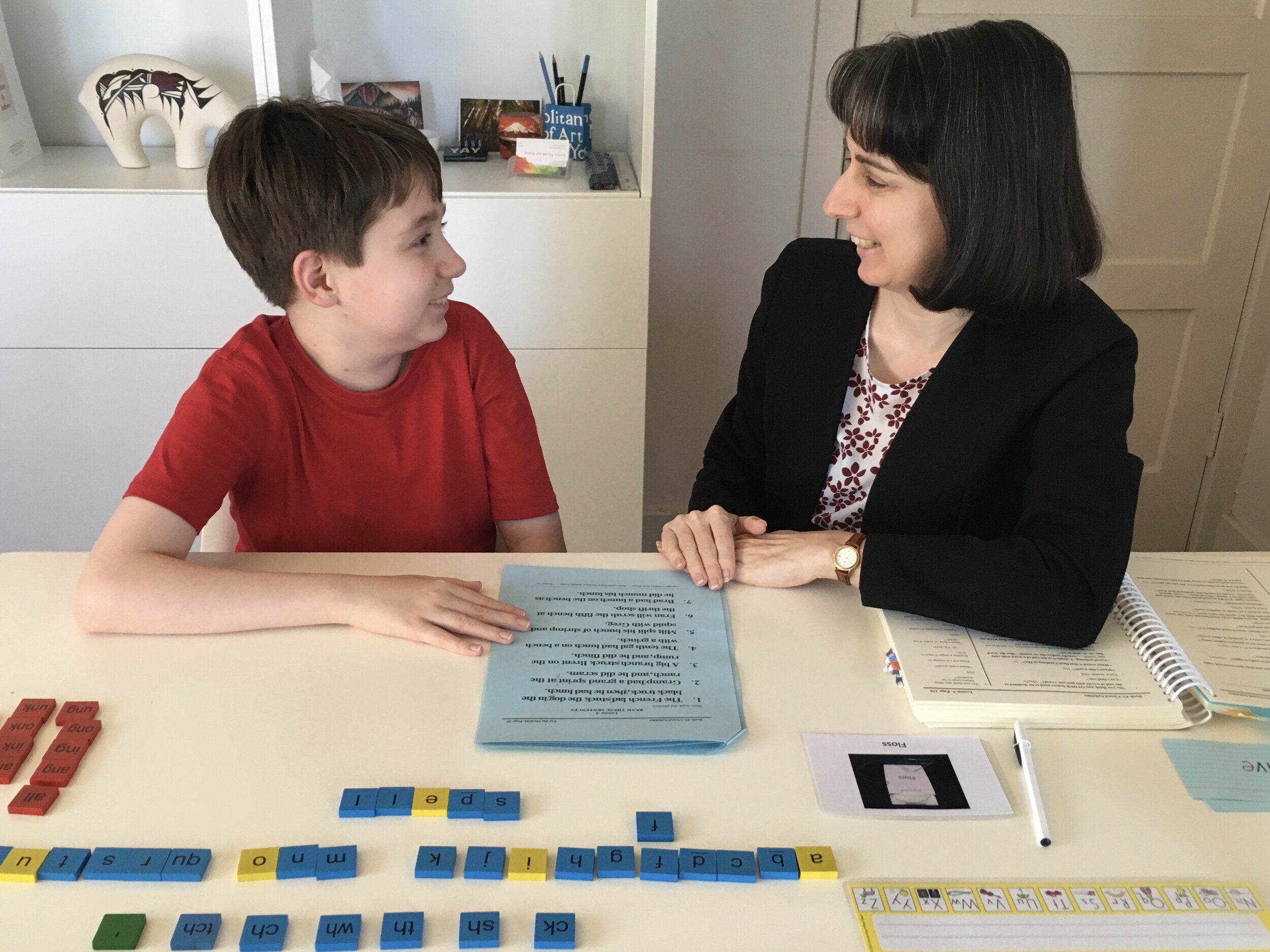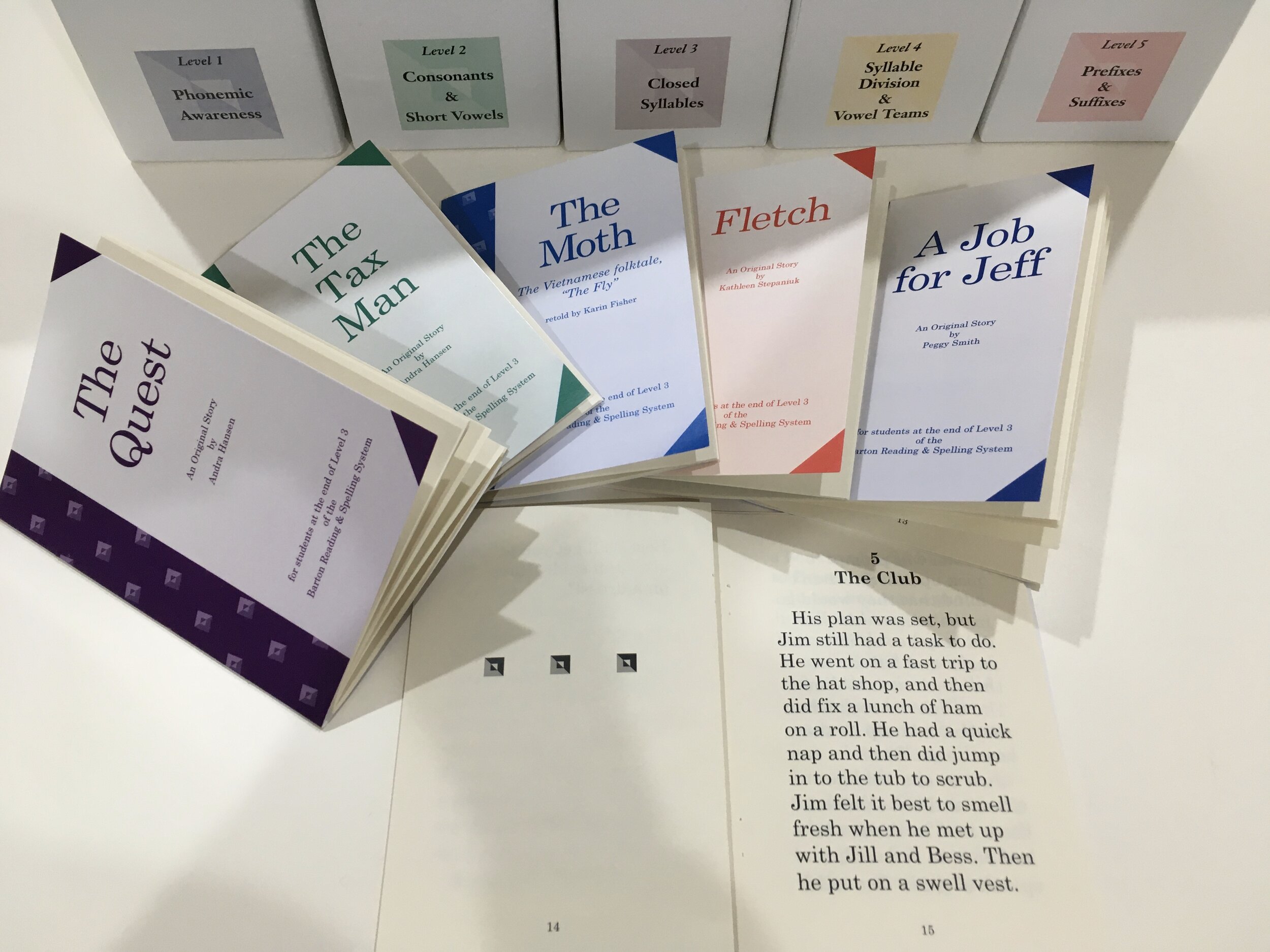
The Barton Reading & Spelling System
The Barton Reading & Spelling System is:
Research based
Orton-Gillingham influenced
Uses multisensory instruction
An explicit and systematic phonics program
Proven to be successful in teaching children and adults, especially those with dyslexia, to read and spell.
To find out more about the Barton system from the creator, Susan Barton, click the button.
Here is what is covered in each Barton level:
Level 1: Phonemic Awareness
Level 2: Consonants and Short Vowels
Level 3: Closed and Unit Syllables
Level 4: Multi-Syllable words and Vowel Teams
Level 5: Prefixes and Suffixes
Level 6: Six Reasons for Silent-E
Level 7: Vowel-R’s
Level 8: Advanced Vowel Teams
Level 9: Influence of Foreign Languages
Level 10: Latin Roots and Greek Combining Forms
The level numbers do NOT equate to grade level. They simply indicate the sequence in which the material is taught.
To watch Susan Barton give a demonstration of concepts taught in Barton lessons, click the button.
Nicole Reardon is a Certified Barton Tutor.

Teaching people to read and spell is very rewarding for me. I love seeing them use their new skills to achieve their own goals.
Did you know
that there is a least one vowel in every syllable of every word?
Did you know that in the English language, there are only 7 syllable types? (Some people say there are 6 types - never mind about that now.)
Everything in the Barton Reading & Spelling System is designed to clarify what the vowel is doing. The colour-coded letter tiles are an essential part of the Barton system. Every lesson begins with the use of coloured tiles. This is important in helping the student identify syllable types. The Barton system clearly explains how syllable types work and how to divide any word into syllables. Knowing how the syllable types work, can help us to read and spell words accurately.
Each Barton lesson teaches new concepts and uses examples in words, phrases, sentences and paragraphs. Students get practice spelling words, phrases and sentences. We work with real words and nonsense words. It’s important for students to be proficient at reading nonsense words, because when we get to reading multisyllable words, most syllables look like nonsense words. New concepts are practiced at the word level, then we move onto the phrase, sentence and paragraph level, where rules and concepts learned previously are incorporated.
The text gets more complex at each level, but it is always decodable because all the words used follow the reading and spelling rules that have been explicitly taught in previous levels. This creates SUCCESS for the student! It is a great relief for students to know that they will be able to decode (read) and encode (spell) all the words presented to them by using the rules that they have learned.

To read some of the 1000’s of testimonials about people’s success using the Barton System, click the button.
“I am loving being exposed to the Barton System alongside my son. It makes the complexities of English spelling understandable and accessible for my child. I have had many ‘A-ha!’ moments myself.”


